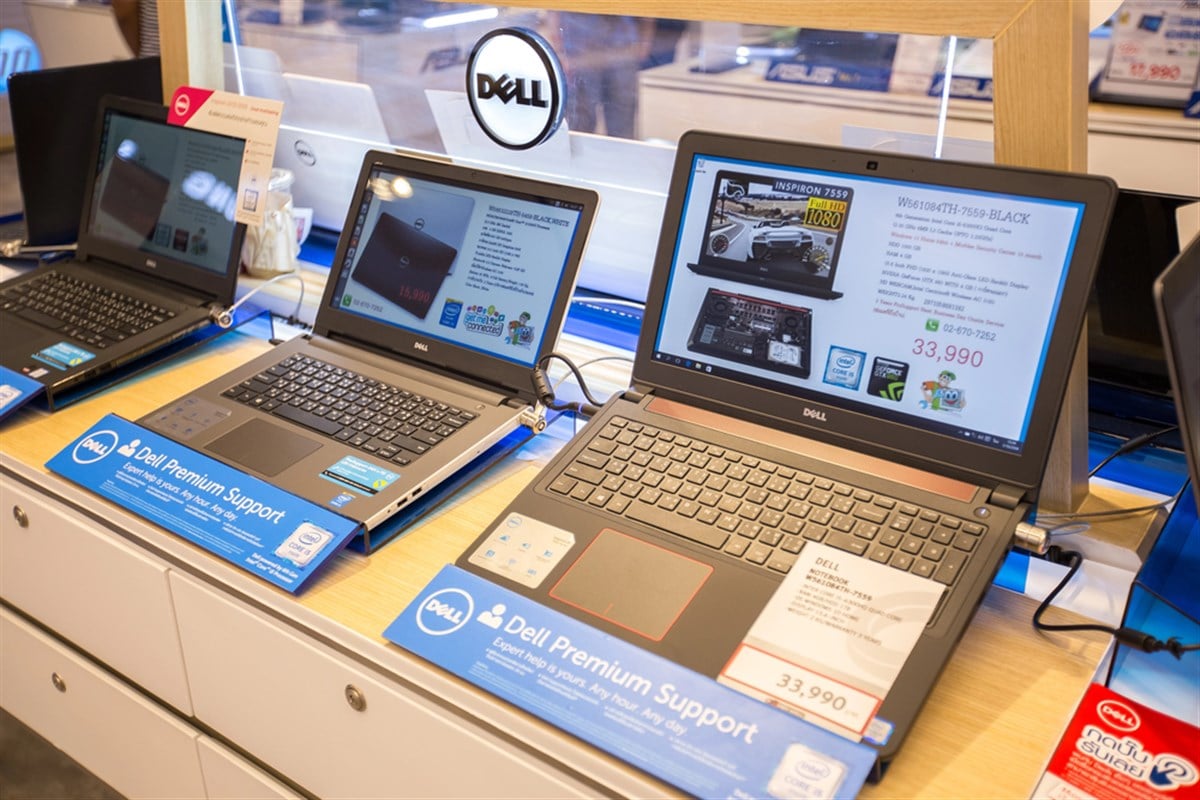
Dell Technologies (NYSE: DELL), a household name in the computer industry, has recently found itself in a challenging position. With its stock price in a steep decline, falling nearly 50% from its 52-week high, the company faces a crucial juncture as it prepares to release its following earnings report on August 29.
Just over two months ago, Dell's stock hit an all-time high of $179.70, only to plummet to $91.46 by Thursday's close. This dramatic drop raises the question: Is Dell's current situation a warning sign for investors, or does it present a generational buying opportunity, especially with the company's strategic pivot towards artificial intelligence (AI)?
Dell's Storied Legacy and Recent Struggles
Headquartered in Round Rock, Texas, Dell is one of the most recognizable computer technology companies globally. With a $64 billion market capitalization, Dell designs, develops, sells, and supports a broad range of technology products, including personal computers, servers, data storage devices, and software. Despite its long-standing reputation, the company has not been immune to the pressures of the rapidly changing tech landscape.
Dell's last earnings report, released on May 30, 2024, delivered a mixed message to investors. The company reported earnings per share (EPS) of $1.04, slightly above the consensus estimate of $1.00. Additionally, revenue for the quarter came in at $22.24 billion, surpassing the expected $21.70 billion.
However, despite these positive figures, the stock fell nearly 15% in after-hours trading. The decline was primarily due to concerns that Dell's AI servers, while seeing strong demand, were not yet contributing to profitability. Dell's Infrastructure Solutions Group, which includes data center sales, reported a 22% increase in sales, driven by a 42% surge in server sales, attributed mainly to AI. However, the unit's operating profits remained flat, disappointing investors who expected AI to boost the bottom line.
Dell's AI-Focused Restructuring
In response to these challenges, Dell has boldly prioritized AI as a central element of its growth strategy. The company recently announced a significant restructuring of its sales division, including staff layoffs and creating a new AI Select Sales team. This restructuring is part of Dell's broader effort to modernize its operations and prepare for the growing demand in the AI sector. The internal memo detailing these changes, titled "Global Sales Modernization Update," highlights Dell's commitment to becoming a key player in the AI-driven future. This pivot is a strategic shift and a necessary adaptation to the evolving technology landscape.
AI has become the new battleground for technology companies, and Dell's proactive approach could position it well for future growth. However, the benefits of this restructuring may take time to materialize, and the upcoming earnings report may not yet reflect the full impact, if any, of these changes.
Technical Analysis: A Potential Turning Point for Dell
From a technical perspective, Dell's stock is at a critical juncture. The sharp decline has pushed the stock below all major moving averages, bringing it back to a critical support area from earlier in the year. This support level, established before Dell's AI-driven surge, could be a pivotal point for the stock. If Dell can stabilize at this level and break its current downtrend, a relief bounce could be on the horizon. However, much will depend on the upcoming earnings report and how the market interprets Dell's recent strategic moves.
Analysts Show Optimism for Dell's Future
Despite the recent struggles, analyst sentiment towards Dell remains relatively optimistic. Based on 15 analyst ratings, the stock has a Moderate Buy rating, with a consensus price target of $135.81. This price target implies a potential upside of nearly 50% from current levels, suggesting that many analysts believe Dell's long-term prospects remain strong. The combination of a low forward P/E ratio of 9.95 and significant potential upside makes Dell an intriguing option for value-oriented investors.






